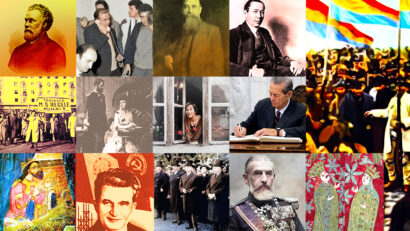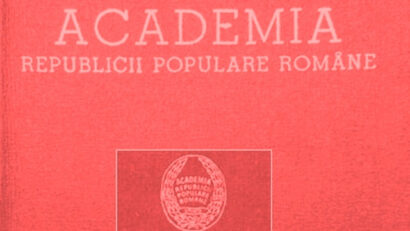
For Romanian culture, February 19, 2026, is a very important date, as it marks the 150th anniversary of the birth of Constantin Brâncuși

The union of the Principalities of Moldavia and Wallachia on January 24, 1859, was one of the three great moments of Romanian history in the 19th century.

In 1948, after the communist regime came to power, it abolished and banned the Greek Catholic Church in order to sever the Romanians' ties with the Vatican and the Western world

International relations after WWII were decidedly oriented towards decolonisation and encouraging former colonies to gain independence

The collapse of the Soviet Union opened the way for the independence of all its former members, with Moldova becoming an independent state on August 27, 1991.

The beginning of the 1960s saw an important change in the philosophy and practice of foreign diplomacy in Romania.

An exhibition that captures a different definition for the term `hero`.

December 22, 1989 was the First Day of Freedom, and everything had to be rebuilt

Dennis Deletant is one of the most prominent foreign scholars from the second half of the 20th century to write about Romania.

Between the 16th Century and the early 19th Century, a practice was in place of gifting monasteries

On December 1, 1918, Transylvania united with the Kingdom of Romania, laying the groundwork for Greater Romania.

In the Stalinist era, social sciences were as ideologically charged as many other parts of people’s lives

In the summer of 1919, at the new Pershing Stadium the Americans had built in Paris, approximately 1,500 athletes competed in 19 sporting events known as the Inter-Allied Game

Historian Ionuț Biliuță looks back at how the idea to build a national cathedral was born and why the project took so long to be realised.

The Special Fund or the Secret Fund of the Library of the Romanian Academy appeared a few months after August 23, 1944
